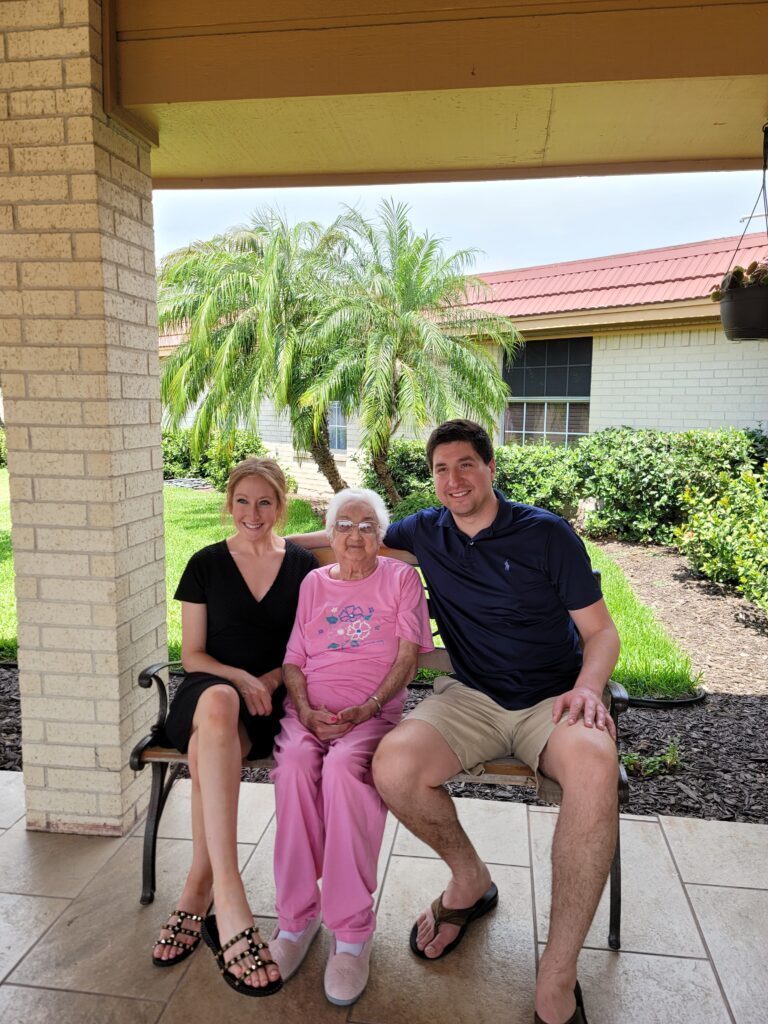What Makes up a Thoughtfully Comprehensive Estate Plan in Tennessee?
Planning for your family’s future is one of the most important steps you can take to protect your loved ones. A thoughtfully crafted estate plan is more than just a will or trust, it’s a personalized blueprint that addresses your unique needs and goals while adhering to Tennessee laws and allowing you to pass on your values to future generations. This article will break down the essential components of a comprehensive estate plan so you can feel confident about your family’s future.
A Will or a Trust: The Foundation of a Solid Estate Plan
 The foundation of any comprehensive estate plan in Tennessee is a will or a trust. These legal tools allow you to get your wishes down in writing and to choose where you want to leave your money and property when you die. They can also allow you to pass on your values to the generations you leave behind.
The foundation of any comprehensive estate plan in Tennessee is a will or a trust. These legal tools allow you to get your wishes down in writing and to choose where you want to leave your money and property when you die. They can also allow you to pass on your values to the generations you leave behind.
- Wills: A will is straightforward and effective for designating who inherits your assets and who will serve as the legal guardian for minor children. While simple, there is a catch: your family and/or kids will have to go through the probate court process before they can inherit your assets. This probate court process can be expensive, time consuming, and uncomfortably public, so most people wish to avoid it completely. You can learn more about probate by clicking HERE.
- Trusts: A primary advantage of using a trust over a will is that trusts avoid probate. This means that your family and/or kids will inherit your assets without any court involvement meaning that it is cheaper, faster, and easier for them after you die. In certain situations, they can also help to minimize estate taxes and protect your assets from creditors and lawsuits.
Click here to learn more about Wills vs. Trusts.
Whether you ultimately choose a will or trust based estate plan, that foundational piece is just the beginning of a comprehensive plan.
A Children’s Trust Protects Your Kids
 A children’s trust is a separate trust that hold’s your children’s inheritance for them and has more than one strategic use.
A children’s trust is a separate trust that hold’s your children’s inheritance for them and has more than one strategic use.
If you have young children, a children’s trust is a must-have. It ensures that your children’s inheritance is managed responsibly by someone you trust until they’re mature enough to handle it themselves.
If you have grown children, a children’s trust can be just as powerful. Giving your adult kids an inheritance check with no strings attached can be a pretty scary thing. They may be very responsible and use their inheritance wisely . . . or they may blow most of it on a wild weekend in Vegas then decide they need a sports car. A children’s trust is the opposite. It gives your kids access to their inheritance for things that you approve of, like health and education, but restricts access to things that you may not approve of, like gambling.
As an additional benefit, whatever has not been spent from your kids’ children’s trust cannot be taken from them. They cannot lose their inheritance to a divorcing spouse, creditors, or by being sued.
Including a children’s trust in your estate plan can truly offer peace of mind knowing your kids’ financial future is secure no matter what.
Disability Planning
 When people think about estate plan, they typically think about planning for their death. But what happens if you become disabled and are unable to manage your own affairs? The truth is that you are 7 times more likely to become disabled in any given year than to die. If you do not have a legal plan in place to address this, then it can create an extremely stressful and expensive situation for your family. Fortunately, we can prevent any nightmare scenarios with a comprehensive estate plan that includes a Durable Power of Attorney and an Advance Directive for Health Care.
When people think about estate plan, they typically think about planning for their death. But what happens if you become disabled and are unable to manage your own affairs? The truth is that you are 7 times more likely to become disabled in any given year than to die. If you do not have a legal plan in place to address this, then it can create an extremely stressful and expensive situation for your family. Fortunately, we can prevent any nightmare scenarios with a comprehensive estate plan that includes a Durable Power of Attorney and an Advance Directive for Health Care.
- A Durable Power of Attorney: A durable power of attorney allows you to choose someone you trust to make financial and legal decisions and handle those matters if you become disabled and unable to manage them yourself. Without a Power of Attorney, your family might face lengthy court proceedings to gain the authority to manage your affairs. This is sometimes referred to as “living probate.”
In Tennessee, a durable power of attorney ensures seamless management of your finances, such as paying bills, managing investments, or even running a business, during times when you’re unable to do so yourself.
- An Advance Directive for Health Care: An advance directive for health care in Tennessee is like a healthcare power of attorney and living will combined. Like a power of attorney for financial matters, an advance directive allows you to choose someone you trust to make medical decisions for you if you become disable and unable to communicate those wishes yourself. Additionally, an advance directive allows you to put your own medical wishes in writing if you cannot communicate them. It ensures your wishes regarding life support, resuscitation, and other critical decisions are honored.
Both parts of the advance directive for health care combine to provide a complete framework for addressing health care scenarios if you become disabled.
Ongoing Support from a Dedicated Estate Planning Attorney
Estate planning isn’t a one-and-done process. Life events such as marriage, the birth of a child, or acquiring new real estate may require updates to your plan. Having a dedicated estate planning attorney ensures your plan evolves with you and remains legally sound.
Your attorney can also provide guidance on Tennessee-specific laws, ensuring your estate plan is going to work as intended when it comes time for your family to rely on it.
Ready to Create Your Comprehensive Estate Plan?
Creating an estate plan tailored to your needs is an act of love and responsibility. By addressing every component—from wills and trusts to powers of attorney and health care directives—you can secure your family’s future and achieve true peace of mind.
If you’re ready to start your journey toward a thoughtfully comprehensive estate plan in Tennessee, contact me today. Let’s work together to protect what matters most to you.

 I practice estate planning because it’s proactive. It allows me to help families avoid unnecessary pain, conflict, and financial stress before tragedy strikes. Instead of reacting to bad situations and putting out expensive fires, I get to work alongside my clients to create legal plans that protect their loved ones and provide peace of mind.
I practice estate planning because it’s proactive. It allows me to help families avoid unnecessary pain, conflict, and financial stress before tragedy strikes. Instead of reacting to bad situations and putting out expensive fires, I get to work alongside my clients to create legal plans that protect their loved ones and provide peace of mind. Growing up as the son of a math professor and a hedge fund accountant, it’s safe to say the apple didn’t fall far from the tree. Add to that
Growing up as the son of a math professor and a hedge fund accountant, it’s safe to say the apple didn’t fall far from the tree. Add to that  I chose to focus solely on estate planning so I can truly serve my clients in the best way possible. Estate planning requires a level of dedication and knowledge that simply isn’t possible when it’s just one of many practice areas. Unfortunately, many attorneys dabble in estate planning without fully committing to understanding its complexities. The unfortunate result is that their clients are left with plans that often don’t meet their needs and sometimes create more problems than they solve.
I chose to focus solely on estate planning so I can truly serve my clients in the best way possible. Estate planning requires a level of dedication and knowledge that simply isn’t possible when it’s just one of many practice areas. Unfortunately, many attorneys dabble in estate planning without fully committing to understanding its complexities. The unfortunate result is that their clients are left with plans that often don’t meet their needs and sometimes create more problems than they solve. We all work hard to build up what we have, so the idea of losing it to a lawsuit or creditor can be worrying. The good news is that Tennessee offers some strong asset protection strategies that can help keep your assets safe. In this post, we’ll break down five asset protection strategies, from basic statutory safeguards to more advanced measures like self-settled asset protection trusts, so you can feel confident that your hard-earned wealth is as secure as possible.
We all work hard to build up what we have, so the idea of losing it to a lawsuit or creditor can be worrying. The good news is that Tennessee offers some strong asset protection strategies that can help keep your assets safe. In this post, we’ll break down five asset protection strategies, from basic statutory safeguards to more advanced measures like self-settled asset protection trusts, so you can feel confident that your hard-earned wealth is as secure as possible.
 LLCs and Asset Isolation
LLCs and Asset Isolation When it comes to estate planning, the availability of cheap, quick, and DIY options can be attractive. But what many people don’t realize is that these internet templates often lack the nuance and customization needed to fully protect your assets and loved ones. Estate planning isn’t just about filling out forms, it’s about creating a legal plan specifically tailored to your family and circumstances. Working with an experienced estate planning attorney not only ensures that your plan is legally sound and strategic, but also provides you with personalized guidance, ongoing support, and the peace of mind that your family is truly protected. In the long run, the risks of a DIY estate plan outweigh any initial savings.
When it comes to estate planning, the availability of cheap, quick, and DIY options can be attractive. But what many people don’t realize is that these internet templates often lack the nuance and customization needed to fully protect your assets and loved ones. Estate planning isn’t just about filling out forms, it’s about creating a legal plan specifically tailored to your family and circumstances. Working with an experienced estate planning attorney not only ensures that your plan is legally sound and strategic, but also provides you with personalized guidance, ongoing support, and the peace of mind that your family is truly protected. In the long run, the risks of a DIY estate plan outweigh any initial savings. Given these risks, it’s important to understand the value of working with a professional. A better idea than taking the DIY approach is to work with an attorney who specifically focuses on estate planning. Estate planning is a unique area of law with many nuances, and having the luxury of a professional providing tailored advice can be the difference that gives you true peace of mind, knowing that you’ve protected your family. One of the most important things that an estate planning attorney provides is education. There are many moving parts to a comprehensive estate plan, not just a will or a trust. This can create confusion when trying to learn the ins and outs by yourself, especially with so much conflicting information online. A knowledgeable estate planning attorney can cut through the noise to make things simple and understandable.
Given these risks, it’s important to understand the value of working with a professional. A better idea than taking the DIY approach is to work with an attorney who specifically focuses on estate planning. Estate planning is a unique area of law with many nuances, and having the luxury of a professional providing tailored advice can be the difference that gives you true peace of mind, knowing that you’ve protected your family. One of the most important things that an estate planning attorney provides is education. There are many moving parts to a comprehensive estate plan, not just a will or a trust. This can create confusion when trying to learn the ins and outs by yourself, especially with so much conflicting information online. A knowledgeable estate planning attorney can cut through the noise to make things simple and understandable. Once a qualified estate planning attorney creates a customized estate plan, the service doesn’t end there. Essential follow-up work, like updating beneficiary designations on investment accounts and life insurance policies and transferring your home and business to your validly created trust, is critical to ensuring your plan works as intended. These important steps are often overlooked and can create nightmare scenarios if neglected.
Once a qualified estate planning attorney creates a customized estate plan, the service doesn’t end there. Essential follow-up work, like updating beneficiary designations on investment accounts and life insurance policies and transferring your home and business to your validly created trust, is critical to ensuring your plan works as intended. These important steps are often overlooked and can create nightmare scenarios if neglected.
 Robert will call you back, shortly.
Robert will call you back, shortly.